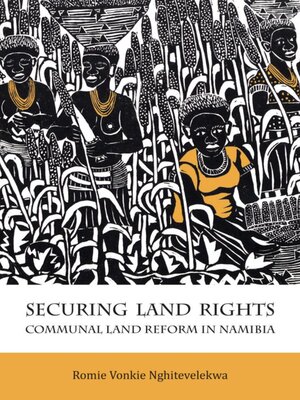
Sign up to save your library
With an OverDrive account, you can save your favorite libraries for at-a-glance information about availability. Find out more about OverDrive accounts.
Find this title in Libby, the library reading app by OverDrive.



Search for a digital library with this title
Title found at these libraries:
| Library Name | Distance |
|---|---|
| Loading... |
Securing land rights takes up themes at the centre of socio-political debates throughout the African continent. These relate to national struggles over access to land, land distribution, land rights and security of tenure. Land in much of rural Africa is communally held, a system that provides security of livelihood and a social safety net, but is not immune to appropriation by government or injustices such as the eviction of women from the land on the death of their husbands.
This book contextualises Namibia within these debates, highlighting the country's stance in relation to communal land tenure reforms with a focus on the realities of people's lives in north-central Namibia. Leading questions centre on competing ways of ascribing value to land; mechanisms and monetisation of access to land; commercialisation of land use, de-agrarianization and ongoing transformation underpinned by economic and territorial restructuring.
These processes have direct impacts on equity in access to land and land distribution, and engender competing visions of land rights. Communal land reform is an uneasy compromise between different processes and interests.







